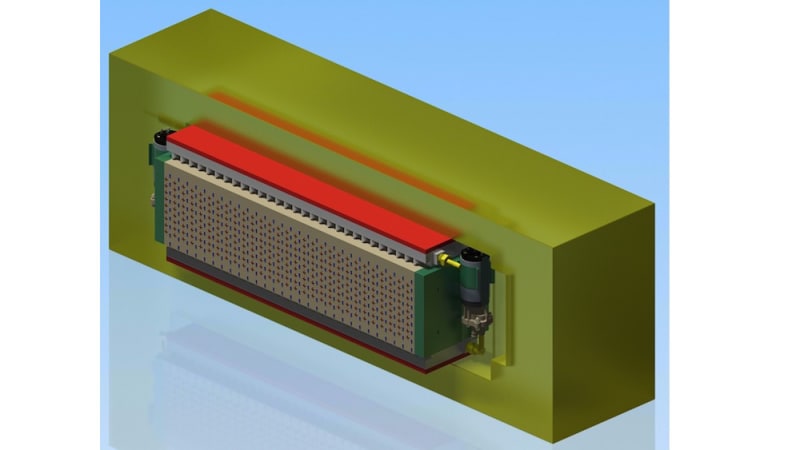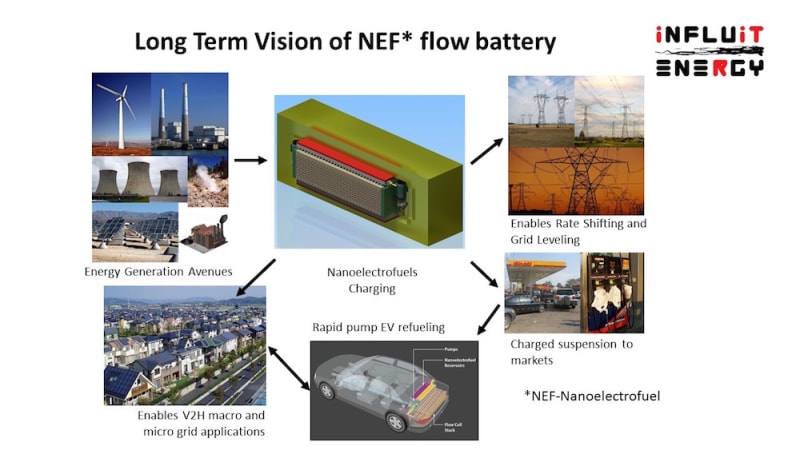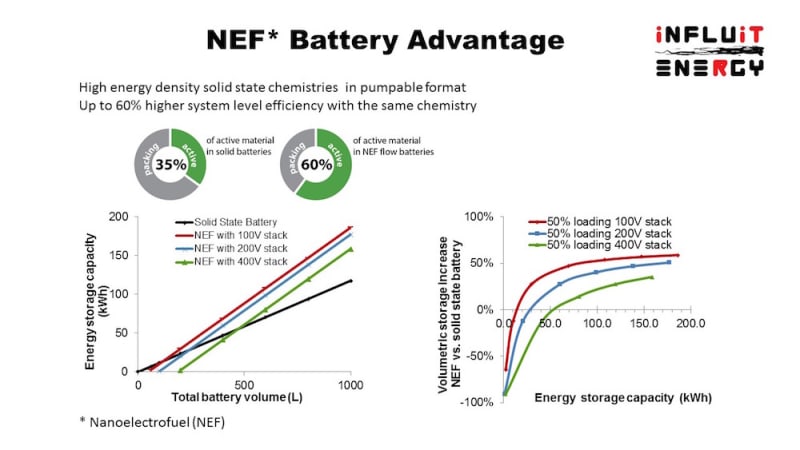Influit Energy presents a prototype design of a novel rechargeable nanoelectrofuel (NEF) flow battery (Figure 1). Our transformational approach uses advancements in nanotechnology and merges high energy density solid battery materials with flexibility of flow batteries creating new energy storage format. Nanoelectrofuels are liquid electrodes containing suspended high energy density cathode or anode nanomaterials that can be pumped in and out of the battery stack and stored in external tanks. The latter allows minimizing packaging materials and 50% higher system level energy density (Figure 2). We are developing a combination of NEF electrodes (cathode and anode) and unique flow battery cells to accommodate effective charge and discharge of nanoparticles in suspension. Our revolutionary approach allows increasing the energy density of flow batteries (40 Wh/L) to and above that of lithium-ion batteries (NEF target 150 Wh/kg and 380 Wh/L).
Batteries for electric vehicles (EVs) are the most demanding in energy density and costs as they are directly competing with gasoline. Thus the technology that can meet the transportation metrics is competitive in any other energy storage markets. We see ultimate use for NEF batteries in almost every aspect of our energy cycle, as NEF flow batteries separate the charging and storage of fuel. Adoption of NEF technology will offer rapid EV refueling, new energy distribution routes, and provide a sustainable alternative by linking on-site renewable power generation with freight or pipeline market distribution (Figure 3).
Our customer discovery revealed existing inertia in the market favoring internal combustion. Currently EVs represent < 1% of all vehicles sold in US. From consumer perspective there are three issues that stop from buying an EV: limited travel range anxiety (need higher energy density), long charging time (need rapid charge replenishment, or refueling), and high costs (need cheaper than Li-ion batteries). NEF technology has all of these to offer, however it will likely take 10-20 years before introduction of new product to the market within traditional auto industry due to vertically integrated value supply chain, multiple deciders and regulations.
As a startup Influit Energy needs a stepping stone market to successfully vet the revolutionary technologies claims. Therefore we have been developing our first minimal viable product, which is a drop-in replacement for batteries currently used in utility electric vehicles (golf carts, forklifts, baggage carriers, etc.). Presented prototype design is 36V stack that will replace six 6V Pb-acid batteries in a people mover cart. In the same form factor our battery stores ~3 times more energy 16 kWh vs. 5.5 kWh, enables either re-charging by plugging-in or replacement of NEF tanks, at costs half of the equivalent energy storage in Li-ion batteries.
We currently have a laboratory demonstration of a single flow cell with NEF electrodes, have developed techno-economic model for this battery, and we are on the path to building the complete prototype, as proposed in conceptual design. The prototype once built will be deployed and tested in a controlled ecosystem of a pilot program (golf course, warehouse, municipal airport).
Video
Like this entry?
-
About the Entrant
- Name:John Katsoudas
- Type of entry:teamTeam members:John Katsoudas
Carlo Segre - Software used for this entry:Inventor and COMSOL
- Patent status:pending








